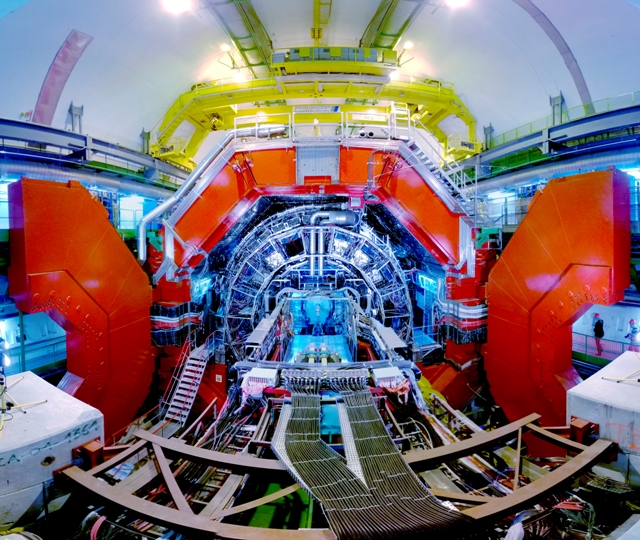Jun 1 2015
Scientists have a special interest in understanding the origin of life and one of the major projects to achieve this is the Large Hadron Collider (LHC). Built by a range of researchers of different nationalities, it also has the support of Mexico, as a multidisciplinary team created ACORDE, the first Mexican cosmic ray detector.
 ALICE
ALICE
"For the first time a Mexican group was responsible to create a full cosmic ray detector," explained Sergio Vergara Lemon, researcher of the Meritorious University of Puebla (BUAP), responsible of electronics and maintenance of that system since 2007.
PhD in optoelectronics by the Faculty of Physical and Mathematical Sciences at BUAP, he points that ACORDE was designed by the National Autonomous University of Mexico (UNAM), the Center for Research and Advanced Studies (CINVESTAV), the Autonomous University of Sinaloa and the BUAP.
ALICE is installed in the LHC of the CERN (CERN). Its function is to characterize other detectors and develop physics experiments of high energy with cosmic rays to record the passage of these.
Arturo Fernandez Tellez of the Faculty of Physical and Mathematical Sciences (FCFM) at BUAP invited Lemon Vergara to participate in the project and implement his knowledge of electronics to attach the detector following the standards and requirements of the investigation. He is currently responsible for maintenance and required modifications.
"ACORDE is so big that everything changes very fast and we need to modify the electronics in order to meet the needs. The team must be at the forefront of technology to solve problems that arise in these scientific challenges," says Vergara Limon.
The Large Hadron Collider is a specific program with five experiments, ALICE is one that is made up of several screening instruments. "It's like an onion, you have a detector inside, one outside and one more, ACORDE, is all the way up," says the researcher.
He adds that the experiment is important because in the universe natural phenomena occur that can not yet be explained and the cosmic ray detector makes it possible to know these phenomena and study them with physics.
"There are particles that come from outer space, interact with the atmosphere and produce showers. When they reach the Earth they are harmless but enter with so much energy that penetrate up to 30 meters underground when they should disappear, " refers Vergara Limon.
Science still does not know what causes them, so we need experiments to detect where they come from and what generates them. This is part of the work performed by ACORDE.
In the coming years the LHC will implement an improvement, various detectors will be modified to measure with accuracy speed and higher quality data, which will reactivate the project for eight years longer than planned.
In this parameter, the BUAP with the research "Studies on heavy ion collisions and hadron-astro-particle detection in the ALICE-LHC experiment at CERN" will update ACORDE, by developing a system to record the electric charge stored by captured particles by the detectors of the system.
Maintenance will also be given to a subsystem by the Mexican group in this new stage: ADD (Alice Diffractive Detector), which will provide trigger signals for the study of diffractive phenomena in this experiment. (Agencia ID)